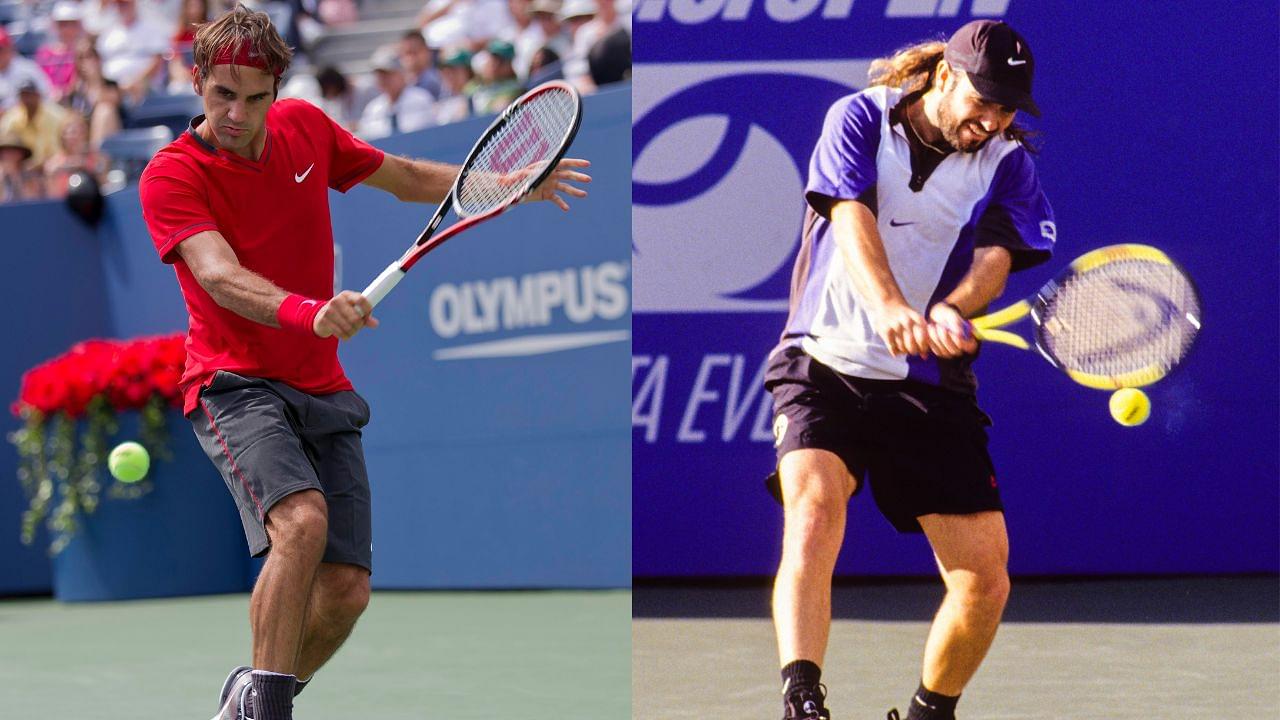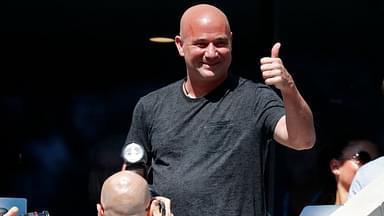Roger Federer was the first player to take over the responsibility of carrying forward men’s tennis even as Andre Agassi was considered the last of the stars by many in the early 2000s. Federer had to get the better of Agassi perhaps before any other player to establish his dominance in the game and the Swiss star knew that very well. In the initial phase of their rivalry, Agassi won their first 3 matches, which made Federer do a lot of soul-searching and realise what he had to do to overcome the American legend. Now, a tennis fan has claimed that the former World No.1 cleverly used the famous ‘Wardlaw Directionals’ theory to turn around his rivalry against Agassi and cited the example of their US Open 2005 final to illustrate the point perfectly according to him.
Paul Wardlaw, the NCAA coach who has won many titles in women’s tennis, came up with this theory. The strategy is based on the player’s relationship with the ball on the court. During a rally, a player must select the right opportunity to redirect the ball in a different direction. Inexperienced players tend to change the direction of the ball at the wrong time, resulting in errors. But with Wardlaw Directionals, the error count is much less and it proves to be effective on the court.
Although the strategy has existed in the sport since time immemorial, Paul was the first one to make a theory out of it. This theory has also been used by the likes of Novak Djokovic and Rafael Nadal and apart from them, Daniil Medvedev and Adrian Mannarino.
Medvedev makes it look even more difficult with his unconventional style of play. While Mannarino has been seen trying to change directions of the ball instead of hitting them with power.
Roger Federer vs Andre Agassi was an epic rivalry in the 2000s
The ATP Tour witnessed few classic matches of young Federer taking on Agassi. The pair first met in the third round at Basel in 1998. Agassi won their first two meetings in straight sets. In their third meeting, Federer did manage to take a set off Agassi during the final at the Miami Open in 2002. Even though he lost, the world then saw how the Swiss went on to become a different player after that.
The Miami Open 2002 final was Agassi’s last win over Federer as he could only win 5 sets in their next eight matches. The 2005 Dubai Open semi-final was Federer’s best win against Agassi in terms of games conceded. It was also their shortest encounter as it lasted for merely 52 minutes. During the match, Federer’s athleticism and court coverage left Agassi shell-shocked.
Roger Federer remarkably turned the tables around in the rivalry, winning 8 out of their 11 matches. Their last match against each other was the US Open 2005 final itself and to Agassi’s credit, he was competitive in many phases during the match despite being way past his peak. And all of Federer’s wins came out on outdoor hard courts, which is quite an accomplishment since Agassi was considered a much better and experienced player on the surface while the Swiss legend was more comfortable on grass courts.







